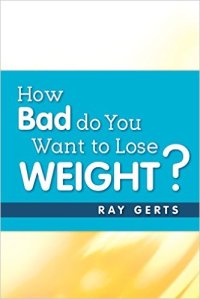What's Worse? Spare Tire Or Love Handles
Belly fat -- especially hidden fat deep in the gut -- may indicate increased the risk for heart disease, a new study suggests. How do you know if you have fat deep in your gut? Your body puts fat under the skin and close to the surface first when it's filling fat cells and that's to insulate the body. That's a survival technique that you inherited from your ancient ancestors who had to worry about surviving through the winter. That layer of fat is not that thick, between one and two inches. Then if you're still adding fat, your body has to put the fat inside the layer of muscle, around the organs and that the fat that causes you health problems.
The six-year study of more than 1,000 adults found people with a "spare tire" in their midsection had a greater risk for heart disease compared to those with visible flab elsewhere under the skin -- or "love handles."
"Adipose tissue [fat in the stomach] along with fat below the skin has been associated with abnormalities, including high triglyceride levels, low HDL levels [low levels of good cholesterol], high blood pressure and greater risk of diabetes," said Dr. Gregg Fonarow, a professor of cardiology at the University of California.
The study looked at abdominal fat quantity and quality.
The researchers cautioned, however, that the study only showed an association between belly fat and potential heart disease, not that belly fat causes heart disease.
Fonarow said perhaps deep abdominal fat is unhealthier because it might increase insulin resistance, which can lead to high blood sugar and type 2 diabetes.
"This study suggests individuals even with a body mass index in the normal or overweight category but who have increased abdominal mass -- a pot belly -- may be at increased cardiovascular risk," Fonarow said.
The study was led by Dr. Caroline Fox, a former senior investigator for the U.S. National Heart, Lung, and Blood Institute. She and her team collected data on 1,106 men and women, average age 45, who took part in the long-running Framingham Heart Study. All agreed to have their stomachs scanned to determine the amount of their belly fat.
Over six years, the researchers found that increases in the amount of fat and decreases in fat density were linked with changes in the risk for heart disease. Each additional pound of fat was associated with newly developed high blood pressure, high triglycerides and metabolic syndrome, which includes high cholesterol and increased odds of type 2 diabetes, the researchers said.
To sum up, belly fat is very dangerous, where love handles not so much. And just adding one pound of fat increase the risk for heart disease, but losing one pound will decrease your changes and for every pound of fat, you lose your changes go down.
Remember, losing on pound on the scale doesn't mean you lost a pound of fat.
If you really want to lose your body fat than look for my Ebook at the websites listed below. You'll get information on Healthy eating, exercise, and diet.
“How Bad Do You Want To Lose Weight?”, is available at all the online bookstores selling for $1.99. Go to any of the websites and search the title to find my Ebook. This book gives you all you need to lose weight without spending money on gym memberships, diet plans or meal plans. Look for my book. at Amazon.com, B&N.com, iBooks, Kobo.com, Scribd.com, or Gardner Books in the U.K.



Comments